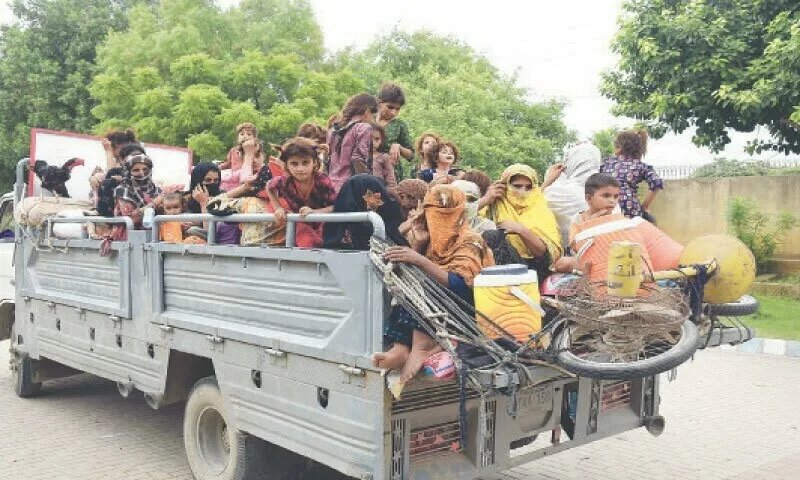The United Nations has warned that climate change is driving record numbers of people from their homes globally, worsening the already dire conditions faced by displaced populations.
As international climate talks take place in Baku, the UNHCR highlighted how rising global temperatures and extreme weather events are contributing to displacement and exacerbating already challenging living conditions. The organization called for increased investment in climate risk mitigation.
In a new report, the UNHCR noted that climate-induced disasters in regions like Sudan, Somalia, and Myanmar, combined with ongoing conflicts, are pushing vulnerable populations into even more perilous situations.
“Across our warming world, droughts, floods, deadly heat, and other extreme weather events are becoming more frequent,” UNHCR Chief Filippo Grandi said in the report’s foreword. “People forced to flee their homes are on the front lines of this crisis,” he added, noting that 75% of displaced people live in countries highly exposed to climate hazards. “As climate change accelerates, this number will continue to grow.”
Currently, 120 million people are forcibly displaced due to war, violence, and persecution, with most residing within their own countries, according to UNHCR data from June. Over the last decade, the number of people displaced by conflict has doubled, said Andrew Harper, UNHCR’s special advisor on climate action.
Weather-related disasters have displaced approximately 220 million people within their countries over the past decade, translating to about 60,000 displacements per day, according to the Internal Displacement Monitoring Centre. “We are seeing an unprecedented increase in displacement,” Harper said, adding that insufficient funding for displaced individuals and their host communities exacerbates the crisis.
Most refugee settlements are located in lower-income countries, often in areas prone to flooding or desertification, and lacking the infrastructure to cope with the worsening impacts of climate change. This situation is expected to worsen: by 2040, the number of countries facing extreme climate-related hazards is projected to rise from three to 65, the UNHCR warned, with many hosting displaced populations.
By 2050, refugee camps are expected to experience twice as many days of dangerous heat, creating health risks, crop failures, and livestock losses, warned Harper. Regions such as Niger, Burkina Faso, Sudan, and Afghanistan are already witnessing the loss of arable land due to climate extremes, even as populations grow rapidly.
The UNHCR is urging participants at COP29 in Baku to ensure that a greater share of international climate funding reaches the refugees and host communities most in need. Currently, fragile states receive just $2 per person annually for climate adaptation, compared to $161 in non-fragile states.
Harper stressed that without increased investment in climate resilience and peacebuilding in vulnerable regions, further displacement to less climate-impacted countries will be inevitable. “If we don’t invest in peace and climate adaptation, people will move,” he said. “It’s illogical to expect them to do anything else.”




